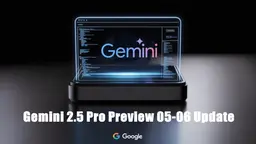Liquid AI Introduction
Liquid AI is an MIT spin-off company that develops innovative Liquid Foundation Models (LFMs) using non-transformer architecture to achieve state-of-the-art AI performance with smaller memory footprint and more efficient inference.
View MoreWhat is Liquid AI
Founded by MIT CSAIL researchers Ramin Hasani, Mathias Lechner, Alexander Amini, and Daniela Rus, Liquid AI is a Boston-based AI company that emerged from stealth mode with $37.6 million in seed funding. The company specializes in creating a new generation of foundation models that go beyond traditional Generative Pre-trained Transformers (GPTs). Their approach is grounded in the integration of fundamental principles across biology, physics, neuroscience, mathematics, and computer science, leading to the development of their flagship product - Liquid Foundation Models (LFMs).
How does Liquid AI work?
Liquid AI's technology is based on liquid neural networks, which are inspired by the 'brains' of roundworms and feature dynamic, adaptive learning systems. Unlike traditional transformer-based models, LFMs use custom computational units arranged in depth groups with featurizer interconnections, allowing them to process various types of sequential data including video, audio, text, time series, and signals. The company has launched three variants of LFMs (1B, 3B, and 40B) that utilize their proprietary architecture to achieve efficient performance. These models can handle up to 1 million tokens efficiently without significant memory impact, thanks to their unique design that incorporates dynamical systems, numerical linear algebra, and signal processing.
Benefits of Liquid AI
The key advantages of Liquid AI's technology include significantly reduced memory requirements compared to traditional models (less than 1GB versus 700GB for models like GPT-3), lower power consumption allowing deployment on small devices like Raspberry Pi, and improved adaptability to changing circumstances even without explicit training. The models offer enhanced interpretability and reliability while maintaining state-of-the-art performance. This efficiency and scalability make LFMs particularly suitable for resource-constrained environments while still delivering competitive performance compared to larger language models, potentially revolutionizing how AI can be deployed across various applications and industries.
Liquid AI Monthly Traffic Trends
Liquid AI experienced a 17.8% decline in traffic, reaching 47.9K visits. Despite the recent launch of the Hyena Edge model and significant funding, the decline suggests that these updates may not have yet translated into increased user engagement. The competitive landscape, with other AI models gaining traction, might also be a contributing factor.
View history traffic
Related Articles
View More













